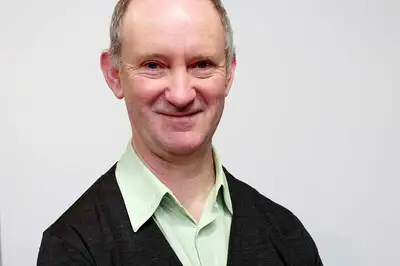
Only social security and welfare and health have larger budgets than education.
By Professor John O'Neill
Government spending on education sits at 5.3 per cent of total Crown expenditure, equivalent to approximately $3,000 for every child and adult. Only social security and welfare and health have larger budgets. The point is that public education is a bit like an oil tanker: big, slow moving and only able to change direction gradually. Voters should be very wary of any party political rhetoric that claims to be able to make dramatic improvements to public education in the short term.
Government education expenditure partially covers the costs of early childhood, school, tertiary and adult and community education. Most political debates and arguments focus on the transparency and adequacy of this partial coverage and how money has been moved from one funding priority to another. There is rarely ‘new money’ available.
When you look at government expenditure on education, the lion’s share goes on staffing costs that directly or indirectly enhance the quality of learner experience. Any major change in education policy settings is likely to require increases in or, more likely, a reallocation of existing staffing resources by education agencies and providers.
Within this relatively stable ‘big picture’, party policies can still vary considerably and these variations have major effects on the educational opportunities and experiences of citizens, residents and overseas visitors. Historically, parties on the political left have tended to favour progressive taxation of higher income earners or increased public debt to enable government to fund a greater number and variety of universal educational services on the argument that this has social benefits for everyone.
Parties on the political right have tended to favour lowering taxes for higher income earners and business, reducing or targeting government expenditure, and increasing user pays for educational services on the basis that individuals and families benefit most from education.
Parties also differ on the extent to which government should provide these educational services publicly or privately through contracting out to the NGO, philanthropic and for-profit sectors (e.g. Public Private Partnerships to build and maintain schools, charter schools, KickStart Breakfast or Kidscan school clothing and public health services schemes, or the idea of schools as community health and social services hubs).

Professor John O'Neill.
In education there are always tough decisions to be made
All political parties claim in some way or another to be committed to the same common goals of high educational standards, diversity and choice, greater efficiency in public expenditure and enhancing educational opportunities for the most disadvantaged in society. This is confusing for voters because their ways of achieving these apparently similar goals can appear quite different.
All governments claim to develop evidence-based policy, in other words making policy decisions having considered all the available evidence – both good and bad. Critics accuse governments of developing policy-based evidence, or ‘cherry picking’ only the good evidence that suits their political ideologies and beliefs. It’s very difficult in this environment for voters (and media) to judge political claims about the best education policy direction unless they have a detailed knowledge of the topic in question.
There is, nevertheless, good evidence that high quality early childhood education can help give children a better start in life and at school. In taking advantage of this evidence, there are tough decisions to make between such things as universal or targeted subsidies and funding more qualified teachers or just more staff overall.
There is also good evidence that the longer a child stays at school and the higher his or her leaving qualifications, the better life chances he or she is likely to have. On this basis, should the next government prioritise the level of the leaving qualification, the career aspirations of the child, or labour market needs?
Very few education policy issues are straightforward. Voters also need to consider what is best, on balance, for society as a whole, not just for themselves. For example, on the one hand, successful completion of higher education is likely to lead to significantly greater lifetime earnings, social participation, wellbeing and happiness; on the other hand, total Kiwi student debt in 2015 was nearly $15 billion, and the average individual student debt was $21,000. This in a context where home ownership rates declined from roughly three-quarters to two-thirds between 1992 and 2016.
Given that students today pay a much higher proportion of the overall costs of their higher education than they did in 1992, and that in 2017 a higher education degree does not lead to the predictably secure professional career pathways it once did, should the next government aim to fully fund, zero fund or partially fund the costs of higher education?
Gaining the knowledge needed to weigh up competing policies takes time and effort. Voters need to do their homework, engage in the debates and remain somewhat skeptical about any truth claims made by politicians, especially in election years, and of the quality of sources they use to promote their policies.
Parties also differ in the extent to which they present inequalities of educational access and achievement as a purely education problem, or as an issue that has broader social, economic and cultural causes and effects. At the end of the day, voters have to decide for themselves where they sit both on particular education policies, and education policy as a whole.
Professor John O’Neill is the director of Massey University’s Institute of Education.